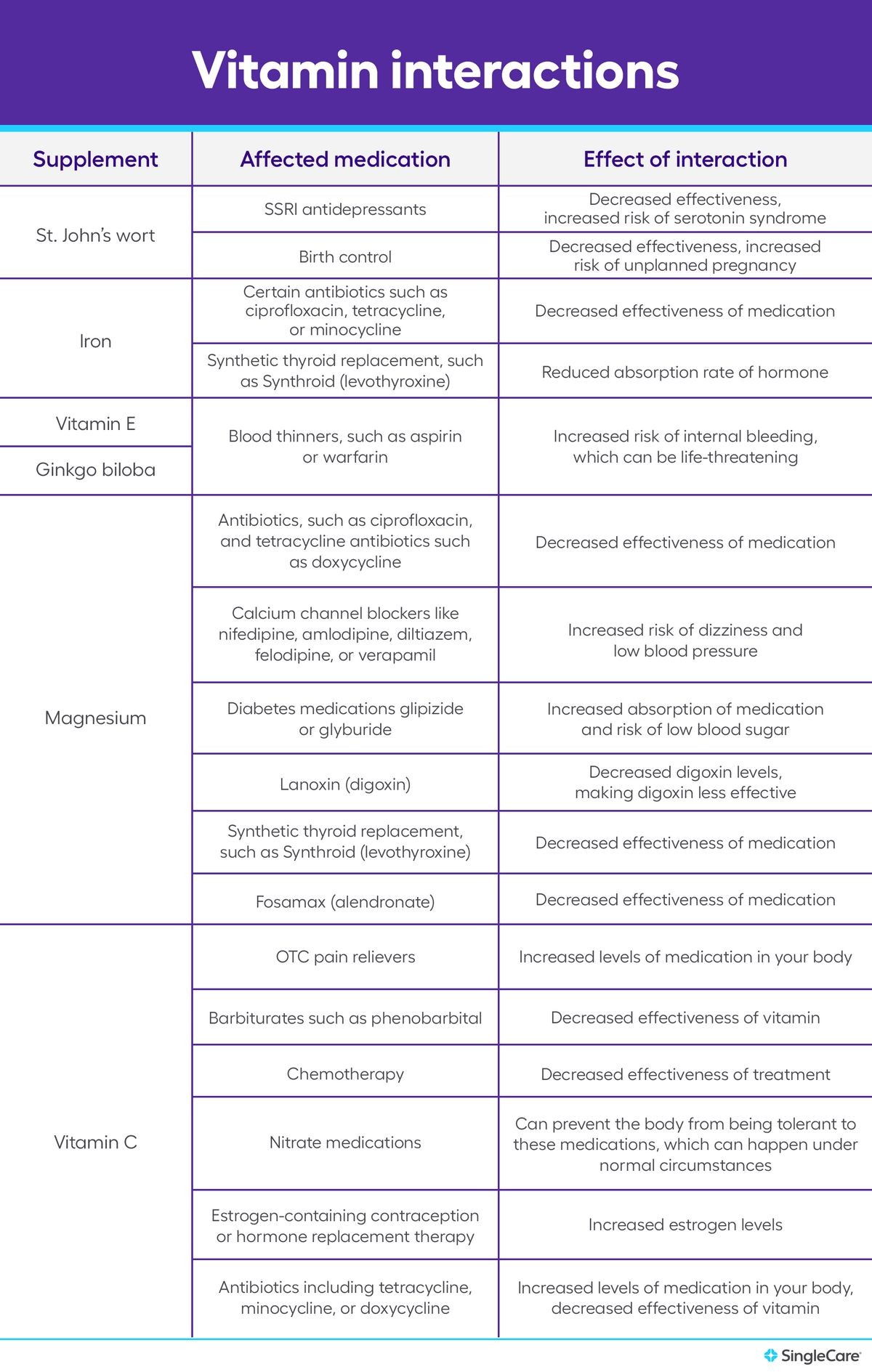
Contents
- 1 What Vitamins and Supplements Should Not Be Taken Together?
- 1.0.1 Vitamin combinations to avoid
- 1.0.2 Other supplement combinations to avoid
- 1.0.3 How long should I wait between different vitamins?
- 1.0.4 What are symptoms of bad combinations or taking too many vitamins?
- 1.0.5 What vitamin should I take in the morning and at night?
- 1.0.6 Vitamin, supplement, and medication interactions
- 1.0.7 Which vitamins are best paired and recommended to be taken together?
- 1.0.8 General supplement safety
What Vitamins and Supplements Should Not Be Taken Together?
Some vitamins should not be taken together or have dosage limitations. For example, vitamin C should not be taken with vitamin B-12, and taking a vitamin A supplement with vitamin A-rich foods can be harmful. Additionally, combining folic acid and vitamin B12 can mask symptoms of a deficiency, and vitamin E can counteract the effects of vitamin K.
Since supplements are not regulated by the FDA, it’s essential to pay attention to the supplements you take, the timing, and the dosage.
Vitamin combinations to avoid
Vitamin C and vitamin B-12 should be taken at least two hours apart to ensure optimal absorption.
Vitamin A supplement with vitamin A-rich foods
As vitamin A is a fat-soluble vitamin, excess intake can lead to weakened bones and harm unborn babies. High vitamin A foods such as liver should be consumed in moderation.
Folic acid (vitamin B9) and vitamin B12
High folic acid intake can mask symptoms of vitamin B12 deficiency, therefore it’s important to consult with a doctor before combining these supplements.
Vitamin E supplementation can interfere with the effects of vitamin K.
Other supplement combinations to avoid
Copper and zinc
Taking copper and zinc together can lead to poor absorption of one of the minerals, which can result in a copper deficiency.
Green tea and iron
Consuming green tea at the same time as iron can reduce the positive effects of both supplements.
Calcium with other minerals
Calcium supplements can interfere with the absorption of minerals such as zinc, magnesium, and iron. It’s recommended to discuss the timing of each mineral with a doctor for optimal absorption.
How long should I wait between different vitamins?
The timing between vitamins depends on the type of vitamin. For fat-soluble vitamins (A, D, E, and K), it’s best to take them with a meal to enhance absorption. B vitamins are energizing and should ideally be taken in the morning, while vitamin E may help with sleep and can be taken in the evening.
QUESTION
What are symptoms of bad combinations or taking too many vitamins?
Taking too many fat-soluble vitamins can lead to excessive storage in the body, causing toxicity. Additionally, certain vitamins can interact negatively with medications, for example, vitamin K can decrease the effectiveness of blood thinners.
What vitamin should I take in the morning and at night?
For mornings, B vitamins are energizing and can be taken at breakfast. In the evening, vitamin E may aid in sleep and memory.
Vitamin, supplement, and medication interactions
In addition to interactions between supplements, certain prescriptions also interact with supplements. It’s important to consult with a doctor before adding any new supplements to your routine, especially if you take medication.
Blood thinners
Vitamin A and vitamin K can interact negatively with blood thinners, so it’s best to avoid taking both. Some herbal remedies can also have interactions with blood thinners.
Drugs to treat heart disease
High doses of vitamin D can interact poorly with drugs used to lower cholesterol and blood pressure, as well as other heart disease medications. St. John’s wort can also interact with medications for cardiovascular symptoms.
Psychiatric medications
Combining certain supplements with antidepressants and anti-anxiety medications can lead to side effects. It’s essential to be cautious when combining supplements with psychiatric medications.
Which vitamins are best paired and recommended to be taken together?
Iron and vitamin C work well together as vitamin C enhances the absorption of plant-based iron. Folate and vitamin B12 also complement each other as they both play a role in cell replication.
General supplement safety
While some supplements have been proven effective, more research is needed for others. Supplements should not replace a balanced diet, and it’s important to consult with a doctor about the appropriate dosage. Reporting any adverse reactions to the FDA is also crucial.


